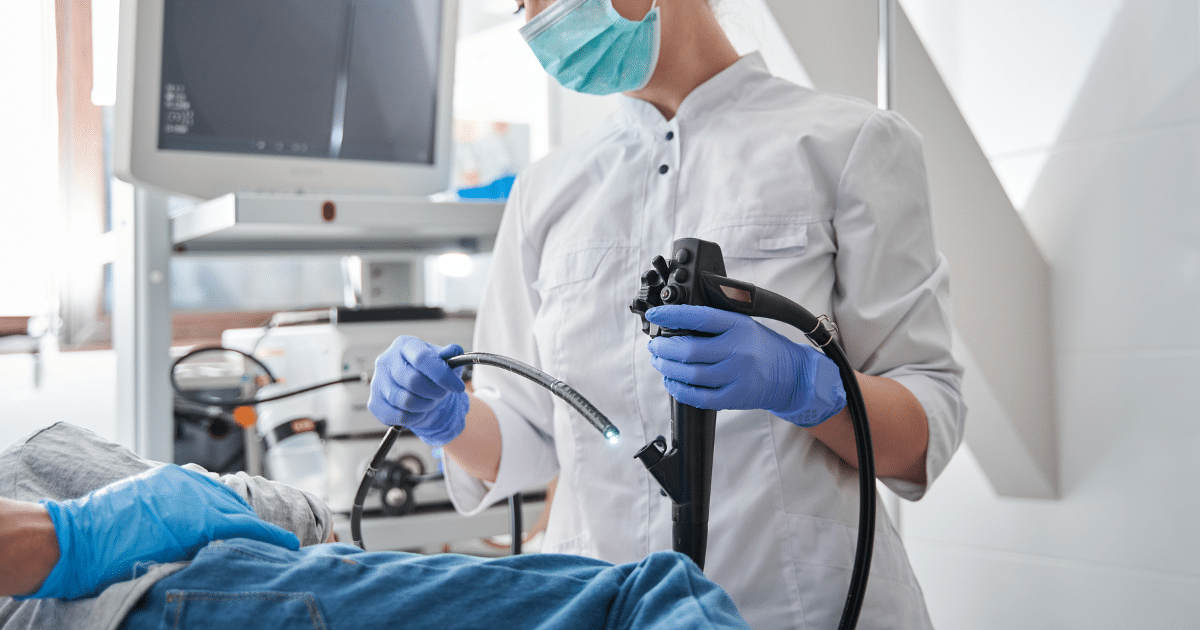Key Takeaways:
- Visiting a pulmonology doctor near you ensures expert diagnosis and treatment for breathing and lung conditions, such as asthma and COPD.
- PACT Pulmonology provides personalized care for chronic and complex respiratory diseases, including pulmonary fibrosis and sleep apnea.
- Treatments may include medication, oxygen therapy, and pulmonary rehabilitation to improve breathing and quality of life.
- Board-certified specialists at PACT offer compassionate, evidence-based care for patients across Connecticut.
- If you’re struggling with shortness of breath or a chronic cough, find a pulmonology doctor near you and schedule a consultation with PACT.
Lung conditions can significantly impact various aspects of your daily life. Even routine tasks like climbing stairs, going for a walk, or doing household chores can become a challenge when breathing isn’t as easy as it should be. Pulmonologists, the specialists in diagnosing and treating lung and breathing conditions, can help you manage these challenges.
Finding a trusted pulmonology doctor near me means having access to the expert care you need to breathe more easily. At PACT Pulmonology, our specialists are dedicated to delivering high-quality care for a diverse range of lung conditions, including asthma, COPD, and pulmonary hypertension.
Asthma
Asthma is a chronic lung condition that makes your airways swell and narrow, making breathing difficult. It affects 10.8% of adults in Connecticut. Asthma attacks can be triggered by factors such as allergens, cold air, or stress that irritate your lungs. Common symptoms include wheezing, coughing, chest tightness, and shortness of breath.
Treatment typically involves inhaled medications, although asthma pills are also available. Some medicines work by helping you have fewer asthma attacks, while others work by helping open your airways in the event of an asthma attack. Pulmonologists may also recommend lifestyle changes, like identifying and avoiding your individual asthma triggers.
Chronic Obstructive Pulmonary Disease (COPD)
COPD occurs when your lungs are damaged, leading to swelling and irritation that make it harder to breathe in and out. It’s often caused by smoking, but long-term exposure to other irritants, like chemicals or fumes, can also play a role. Symptoms typically worsen over time and may include an ongoing cough, wheezing, or difficulty breathing.
Pulmonologists use prescription medications to help control the symptoms of COPD and slow the progression of the disease. They may also recommend other treatments, like oxygen therapy or pulmonary rehabilitation programs, or lifestyle changes, like quitting smoking.
Pulmonary Fibrosis
Pulmonary fibrosis is a lung disease in which lung tissue becomes damaged and scarred. Most of the time, the disease is idiopathic, meaning the cause of the damage is unknown. The scar tissue makes it harder for your lungs to expand, resulting in symptoms such as shortness of breath, a persistent dry cough, and fatigue.
Although there’s no cure for pulmonary fibrosis, pulmonologists can offer many treatments to ease symptoms and improve quality of life. That could include prescription medications, oxygen therapy, and pulmonary rehabilitation. In severe cases, pulmonologists may refer patients for a lung transplant.
Pulmonary Hypertension
Pulmonary hypertension is a condition characterized by high blood pressure in the arteries that carry blood from the heart to the lungs. It occurs when the artery walls become narrow and stiff, making it more difficult for blood to reach the lungs. The condition is sometimes caused by other lung diseases, like COPD or pulmonary fibrosis. Common symptoms include shortness of breath (even at rest), blue or gray skin, and chest pressure or pain.
Treatment can be complex, which is why seeing an experienced pulmonologist is crucial. There is a wide range of medications that are used to manage symptoms or prevent complications. Other therapies, such as oxygen therapy, may also be recommended.
Obstructive Sleep Apnea (OSA)
OSA is a common sleep disorder that affects the way you breathe during sleep. With OSA, the tongue and the soft tissues in the back of the throat relax, blocking your airway. You may experience periods of interrupted breathing throughout the night, and when you do breathe, air may not be able to enter your lungs. Common symptoms include loud snoring, daytime sleepiness, and waking up with a headache or sore throat.
The primary treatment for OSA is a continuous positive airway pressure (CPAP) device. CPAPs blow air into the nose or mouth to keep the airway from collapsing. Pulmonologists may also recommend lifestyle changes to help manage OSA, such as losing weight or choosing different sleeping positions.
Lung Infections
Lung infections occur when viruses, bacteria, or fungi enter the lungs, leading to inflammation. Pulmonologists see patients with a wide range of lung infections, but the most common are bronchitis and pneumonia. Symptoms of lung infections range from mild to severe and may include coughing, wheezing, or fever.
For lung infections, treatment varies depending on the underlying cause. Pulmonologists will prescribe medications to treat the disease if necessary. They may also prescribe medications to manage your symptoms and help you breathe more easily.
Other Lung Conditions
Pulmonologists are experts in diagnosing and treating a wide range of breathing disorders, from common conditions such as asthma and COPD to rare or complex diseases. They may see patients with cystic fibrosis, bronchiectasis, pleural disease, occupational lung disease, and many other conditions that affect breathing.
Treatment for other lung conditions depends on the condition, but may include prescription medications, oxygen therapy, pulmonary rehabilitation programs, or specialized procedures when needed. Pulmonology doctors utilize their expertise to recommend the most effective approaches, helping individuals with rare or complex conditions experience improved well-being.
Find a Pulmonology Doctor Near Me With PACT
Whether you’ve been diagnosed with a lung condition, like asthma or COPD, or are seeking answers for unexplained symptoms, like a chronic cough or difficulty breathing, PACT Pulmonology is ready to help. Our board-certified Connecticut pulmonologist provides expert evaluation and diagnosis for breathing-related conditions, as well as individualized treatment plans to help you breathe more easily.
It’s time to take control of your lung health. Find a pulmonology doctor near you and request an appointment today.
FAQs: Top Conditions a Pulmonology Doctor Can Help Treat
Q: What conditions does a pulmonologist treat?
A: Pulmonologists treat asthma, COPD, pulmonary fibrosis, pulmonary hypertension, sleep apnea, and other lung diseases affecting breathing.
Q: When should I see a pulmonologist near me?
A: You should see a pulmonologist if you experience persistent coughing, wheezing, chest tightness, or shortness of breath.
Q: How does a pulmonologist diagnose lung conditions?
A: Pulmonologists use tests like chest X-rays, CT scans, lung function tests, and oxygen measurements to evaluate and diagnose breathing problems.
Q: What treatments are available for COPD or asthma?
A: Treatments may include inhalers, prescription medications, pulmonary rehab, oxygen therapy, and personalized lifestyle recommendations.
Q: Does PACT Pulmonology accept new patients?
A: Yes, PACT Pulmonology is accepting new patients throughout Connecticut. Schedule your appointment to start improving your lung health today.







